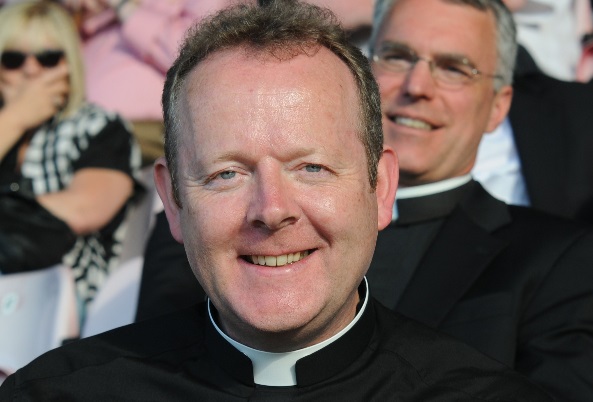
The HSE spent €380,541 last year referring children to the Tavistock Gender Identity Development Service in the UK, figures released under freedom of information legislation show.
Irish children experiencing gender identity issues are frequently referred to Tavistock’s clinics in London and Leeds for psychological support under the HSE’s treatment abroad scheme. Last year 40 children from Ireland were referred to the specialised service in the UK. Twice as many girls as boys have been referred from Ireland over the past four years. Nine of those referred since the start of 2018 were girls aged between 12 and 14, the figures show.
The service was criticised earlier this year by Marcus Evans, a former governor of the Tavistock and Portman NHS Foundation Trust, who resigned over concerns that it was too quick to give young people gender reassignment treatment.
Evans’s resignation came shortly after a critical internal report by David Bell, the trust’s then governor, who suggested Tavistock’s services were “not fit for purpose” and that “children’s ends are being met in a woeful, inadequate manner and some will live on with the damaging consequences”.
Children as young as 11 in Tavistock have been treated with hormone blockers to stop puberty.

The forces of secularism can act to exclude people of faith from participating in political discussion of the common good. That’s according to Archbishop of Armagh, Dr Eamon Martin, who was speaking at the Kennedy Summer School in New Ross yesterday.
Archbishop Martin said the Church is not some kind of political agent and must not seek to supplant the State. He said the Church recognises the reality of secularisation and supports the rightful autonomy of earthly affairs. But, it sees this as being “very different from ‘secularism’, which at times quite aggressively seeks to exclude altogether the voice of faith and religion from the public square.” He added: “Clashes are likely to occur when culture is characterised by moral relativism – where little is considered to be definitive, where the absolute rights of individuals are held to be paramount, and where a so-called ‘illusion of self-sufficiency’ is perpetuated. In this context, people of faith who draw upon objective moral norms in certain matters, can be portrayed as unjust, prejudiced, and as a threat to individual freedom and autonomy.”

Presidential candidate Bernie Sanders sparked outrage after linking abortion to population control during a discussion on how to combat climate change Wednesday night.
The Vermont Democrat was asked during CNN’s town hall on climate change whether he would make curbing population growth a “key feature” of his plan to address climate change.
Sanders said he would and added that he would support taxpayer-funded programs to provide abortions and birth control for women in developing countries as a measure to combat the climate crisis.
“The Mexico City agreement, which denies American aide to those organizations around the world that allow women to have abortions or even get involved in birth control to me is totally absurd,” Sanders continued. “So I think, especially in poor countries around the world where women do not necessarily want to have large numbers of babies, and where they can have the opportunity through birth control to control the number of kids they have, is something I very, very strongly support.”
Conservative CNN host S.E. Cupp, meanwhile, accused Sanders of referring to eugenics: “Let’s just state for the record: talking about needing ‘population control’ through ABORTION for the sake of CLIMATE is talking about EUGENICS,” Cupp tweeted. “The fact that @BernieSanders is willing to entertain this vile idea is not only disgusting, it should be disqualifying.”

A healthy baby was born in the Czech Republic to a mother who had been brain-dead for nearly four months, doctors said Monday.
The baby girl was born by Caesarean section in the 34th week of pregnancy last month, 117 days after her mother was declared brain dead, doctors at University Hospital in the second Czech city of Brno told a press conference.
The girl, weighing 2.13kg, is “one of the heaviest and most mature babies born to a brain-dead mother”, said Roman Gal, the hospital’s head anaesthesiologist.
The mother was declared brain dead after suffering a haemorrhage in April when she was 16 weeks pregnant.
Doctors kept her heart, lungs, kidneys and other organs working while monitoring her unborn child.
Nurses “talked” to the child in the womb, while her grandmother read her fairytales and a therapist moved the mother’s legs to simulate walking, Gal added.
The mother’s life-support system was turned off after the birth.
The baby is being breastfed by her aunt, who also has a baby.
In a similar case in Portugal, a baby boy was born to a brain-dead mother in 2016.

The Dutch Liberal democratic party is drawing up legislation which would make it possible for the elderly who consider their life is at an end to be helped to die.
D66 parliamentarian Pia Dijkstra said she plans to introduce a draft bill early next year. Government ministers are currently looking into options for assisted suicide for people who are ‘tired of life’ but, says Dijkstra, health minister Hugo de Jonge is not working quickly enough. ‘The minister obviously senses the urgency less than I do,’ she said. ‘The very elderly who have had enough should be able to die when they choose.’
In June the government launched a new campaign to encourage people to think more about the end of their lives – well before they reach them. The website About Palliative Care brings together all sorts of information about care options for later life and how to talk with family and friends about your wishes.
Euthanasia was legalised in the Netherlands in 2002 for those over 12 experiencing ‘hopeless and unbearable suffering’, who want to die and have come to the conclusion independently.

62% of divorce attorneys in the US surveyed reported an increase in the total number of clients requesting prenuptial agreements in recent years. That’s according to a recent study conducted by the American Academy of Matrimonial Lawyers (AAML).
Among those attorneys who reported an increase, 51% said there was an increase in the number of millennial clients signing prenups.
Jacqueline Itani, an Associate at Stutman, Stutman & Lichtenstein, LLP told Business Insider that young people are interested in signing prenuptial agreements for a variety of reasons: they want to protect their assets; they are getting married later in life and may have more assets going into marriage than past generations; they don’t just want to protect their current assets — they also want to safeguard assets they may acquire later on in life; they don’t see prenups as taboo. She also noted that more women are interested in prenuptial agreements than ever before.

A doctor in South Africa is facing charges for telling a patient that a foetus is a human being.
The Health Professions Council of South Africa (HPCSA) are hearing a case against the doctor, Jacques de Vos. He is facing charges of unprofessional conduct and has been prohibited from practicing medicine due to his views on abortion, according to Sowetan Live.
In December 2016, the former intern at 2 Military Hospital in Wynberg discussed the nature of pregnancy and abortion with a patient. During the consultation he supposedly told the patient that a foetus was a human being.
Furthermore, he allegedly likened abortion to killing an unborn human, while working for the gynaecology division during his intern year.
The complainant alleges Dr de Vos tried to infringe her autonomy with his anti-abortion utterances.
Spokesperson for Right To Life UK Catherine Robinson said: “This case is nothing short of incredible. That a foetus is human is a well established scientific fact and to claim otherwise demonstrates a complete failure to grasp basic human biology. If this doctor, or any medical doctor, claimed that a foetus was not a human being, it would raise serious questions about the value of their medical training.”

The Health Service Executive is seeking to recruit a doctor tasked with ensuring that abortion takes place in all 19 maternity units around the country. Currently about half are not, partly because of conscientious objections by doctors in those units, Around 350 GPs out of several thousand also facilitate abortion.
The person to be appointed will be required to provide clinical leadership for the implementation of “safe, evidence-based, quality-assured, woman-centred, accessible services for women who require abortion care”, according to the role description.
The post is a part-time one, open to experienced obstetricians and gynaecologists for a two-year period. The HSE says it may be re-advertised thereafter “if the continuation of the role is deemed necessary”.

Any childminder looking after children in their home who is not registered with Tusla will face prosecution under plans being rolled out by the Government.
Toby Wolfe, principal officer at the Department of Children, said it would be a “legal requirement” for all non-relative childminders to register with the agency and to meet a range of standards if they wished to remain in business.
He was speaking at the publication of a draft childminding action plan and a consultation process on the plan, which will see the mostly informal sector regulated and standards imposed. Parents or guardians using childminders will, as result, be able to avail of childcare supports.
Legislation will be drawn up and implemented over the course of the next five years requiring that childminders undergo formal training and are Garda vetted. Their homes will also have to be inspected to ensure they meet minimum requirements.

The Medical Council has issued new ethics guidelines that take account of the change in law regarding abortion. New abortion legislation was introduced in January permitting abortion on wide grounds and requiring pro-life doctors to refer women seeking abortions to doctor willing to facilitate that. The new ethics guidelines strengthen that requirement. The section on end of life care still prohibits the deliberate killing of patients in that context.
In respect of abortion, the guidelines state that ‘Termination of Pregnancy is legally permissible within the provisions of the Health (Regulation of Termination of Pregnancy) Act 2018’ and add that ‘You have a duty to provide care, support and follow-up for women who have had a termination of pregnancy.’